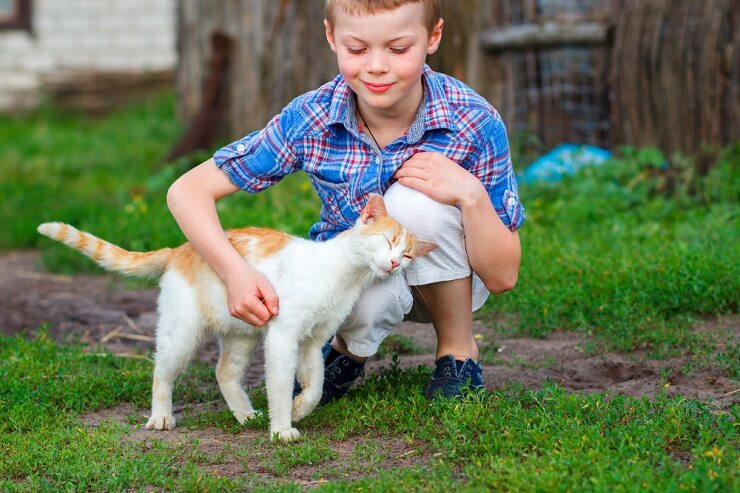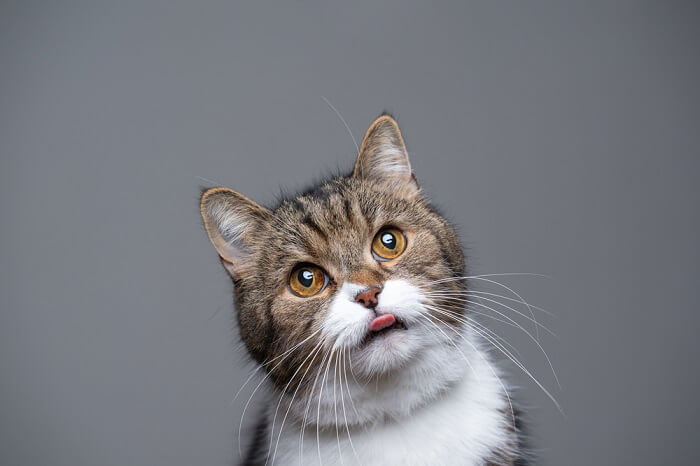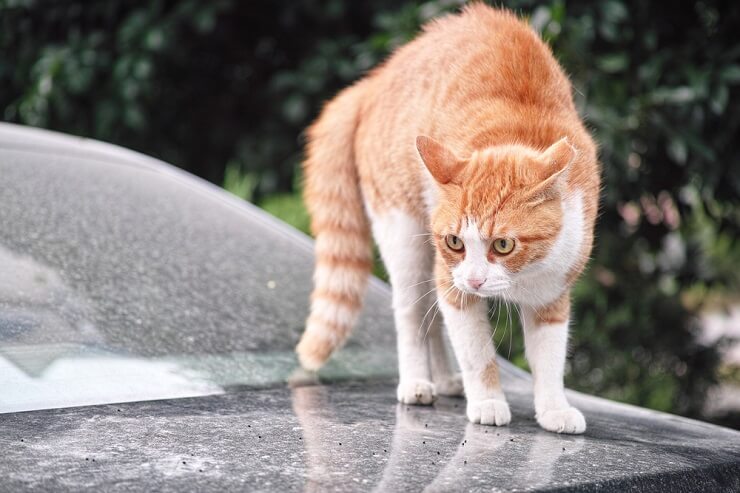All Your Cat Headbutting Questions Answered
This page contains affiliate links. We may earn money or products from the companies mentioned in this post through our independently chosen links, which earn us a commission.
Cats are mysterious animals known to exhibit some interesting behaviors such as kneading or butt poses.
And if you’re a cat parent, you’ve probably experienced a headbutt. Most cat owners interpret the headbutting behavior from their felines as a sign of aggression which couldn’t be further from the truth.
Cats give you a headbutt which is also known as bunting as a contact gesture. Felines use bunting to create contact not only with their owners but also with other animals around them, or objects like tables, couches, etc.
Why Do Cats Head Butt?
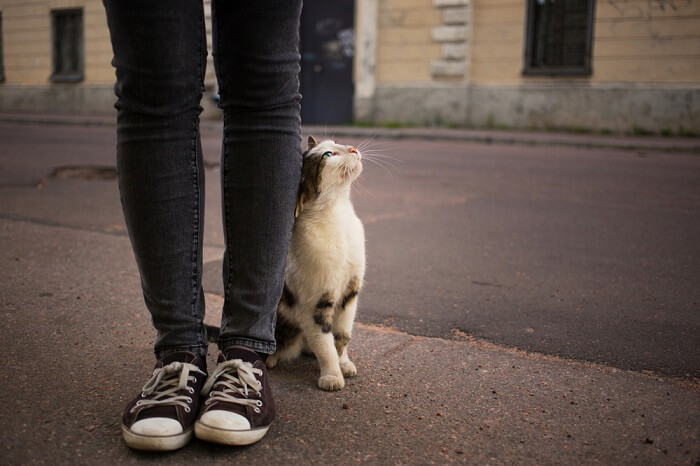
Headbutting is common in the cat family. For instance, lions like to head bunt their family members as a sign of respect.
When it comes to your cat, there are various reasons why she would want to head bunt you.
Let’s look at two of the most common answers to the question why do cats headbutt.
1. Creating Colony Scent
A known reason why cats love headbutting their owners is to mark them with their scent. The cat’s scent helps create a close bond between the feline and her owner. Also, leaving their scent on you makes it easier for your kitty to recognize you and other family members.
The colony scent also helps the cat mark an environment as safe and create familiarity with the space, people, or the objects around them.
The scent glands release pheromones in the cat’s cheeks, forehead, paw pads, flanks, tail, and lips creating the unique scent.
2. As A Sign of Affection
Cat owners often ask if cat bunting means that their furball loves them. The answer is an encouraging yes!
Cats headbutt to show affection to their owners or someone they trust. Cats do not head bunt everyone. They only do it to people they feel safe around or think highly of.
So, if your feline has a habit of giving you a gentle head bunt, it means that they trust you and want to be close to you.
Why Does My Cat Headbutt Objects And Other Pets?
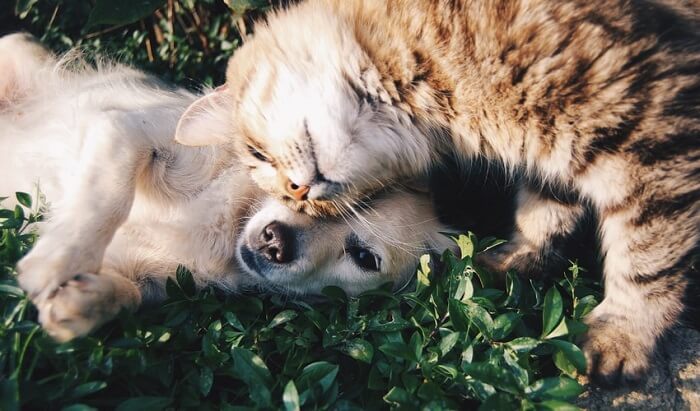
We have just explained that your feline headbutts you to mark you with their scent and as a show of affection.
But what does it mean when your cat headbutts objects such as furniture, and should you be alarmed?
For starters, cat bunting behavior should never be a cause for alarm unless your cat is constantly head pressing against objects, as this may be a sign of a head injury.
Your cat will head bunt objects when they want to mark their territory and alert other cats that the area is taken. Another reason they do this is to release their scent, which helps them create a familiarity with the surrounding area.
You may also notice your cat head bunting other cats or pets. This is done as a show of respect and to create a common scent on other household pets.
Should I Headbutt My Cat Back?
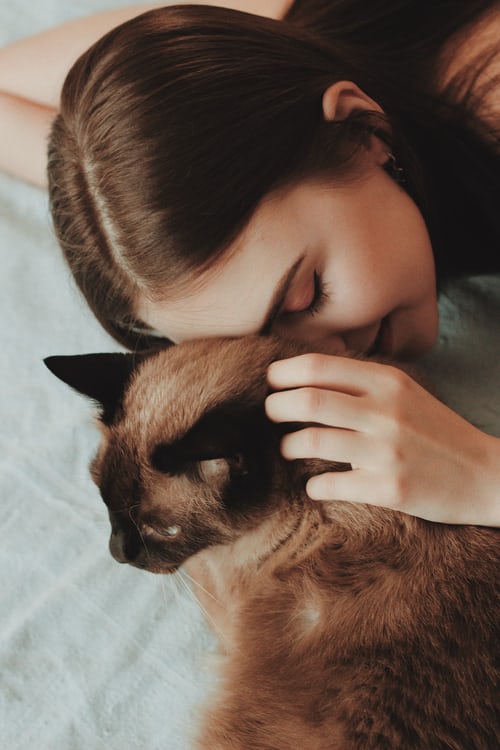
If your cat loves to give you a head bunt, try and give them a gentle one right back and watch how they react. If she head bunts you back, it’s a sign that she likes it.
Always ensure you give your cat some attention every time they head bunt you. You can cuddle him or rub him gently to show them you appreciate the affection. Your cat’s reaction will let you know if the gesture was well received. You could also tilt their head to their side and rub their under-chin. Your cat will love this affectionate gesture and may just reward you with more headbutts.
Why Doesn’t My Cat Headbutt Me?
If you have a cat that doesn’t headbutt you as often as you would like, don’t worry.
Some cats may not head bunt at all. But you should never interpret this to mean that your furball doesn’t love you.
Apart from head bunting, cats are social animals, and they communicate and show affection in many different ways. Besides, your cat may just be a little shy, or they may still be learning to trust you. For instance, if your cat is in a new environment, give them time as they might be trying to adapt to the unfamiliar surroundings.
In closing, headbutting in cats is an adorable way of your feline telling you that they trust and love you. If you are lucky to have a feline that head bunts you, enjoy this warm gesture and, if possible, give them a gentle head bunt back.
FAQs
Why do cats headbutt in the morning?
Headbutting in the morning is very common among cats. Cats communicate in different ways. A head bunt in the morning may mean your cat is trying to get your attention, or this could be a signal that your cat wants to play. Cats also head bunt in the morning when hungry to signal you to give them something to eat.
Why does my cat headbutt me when I am sleeping?
You may have experienced a soft head bump or a head rub from your cat that startled you from your sleep, prompting you to wonder what your cat wants. Cats often identify safe and familiar people and objects through their scent. When you’re asleep, you may sweat, which will change your scent. Often, when you find your cat head bunting you while you’re asleep, they may be doing so to mark you with their scent.
Why does a cat headbutt then bite?
Your cat may give you that familiar head bunt followed by a gentle bite. This might startle you, and you might conclude that your cat is aggressive. On the contrary, this is not a sign of aggression, though the biting is a cause of concern to many cat owners. What this means is that your cat needs your attention. Try playing with your cat and see the response. Other times when your cat does this, she wants to alert you that she is hungry. Try to put a snack or some food on her plate and watch her reaction. If none of these tactics work, then it means that your cat was showing you affection with a headbutt and a bite. So, love them back.
Why does my cat headbutt my dog?
If you have many pets co-existing in your home, you may notice that apart from your cat head bunting you or the furniture, she also headbutts the family dog. Your feline does this to create a bond with your dog since head bunting to cats is also a way of socializing. Also, when cats head bunt other animals, they share their scent, which helps create a colony scent. So, when you see your cat head bunting your dog, it’s safe to say that the two share an excellent bond.

